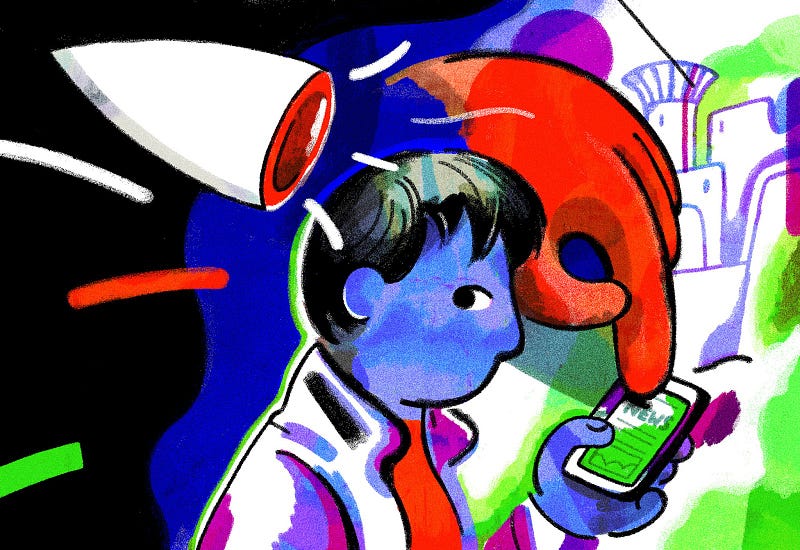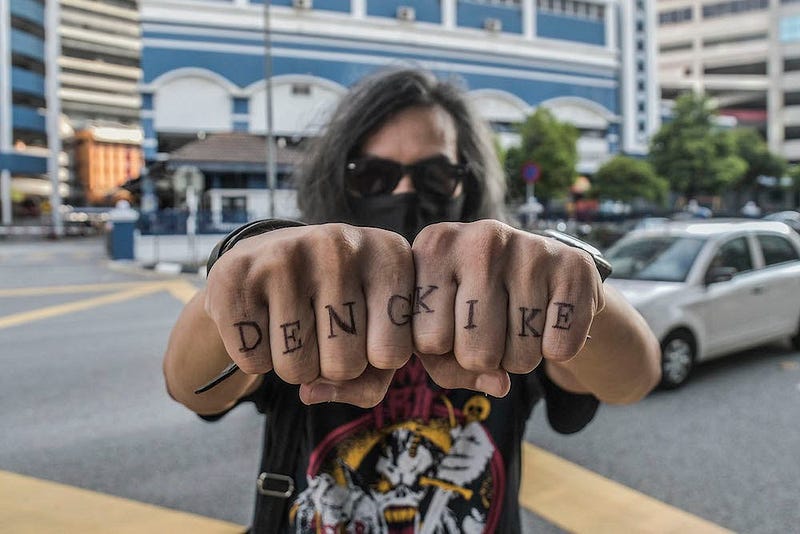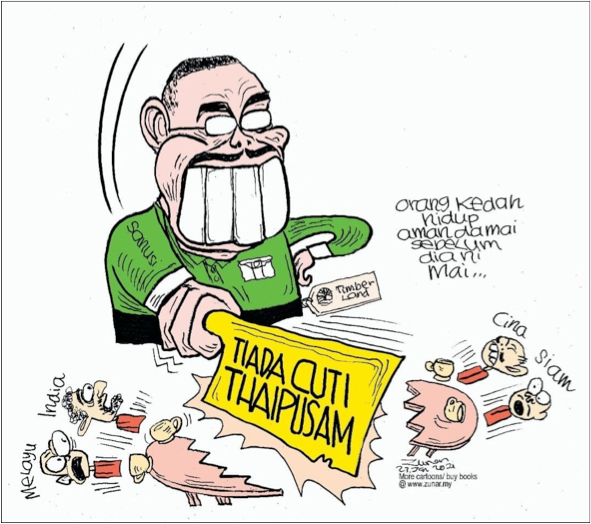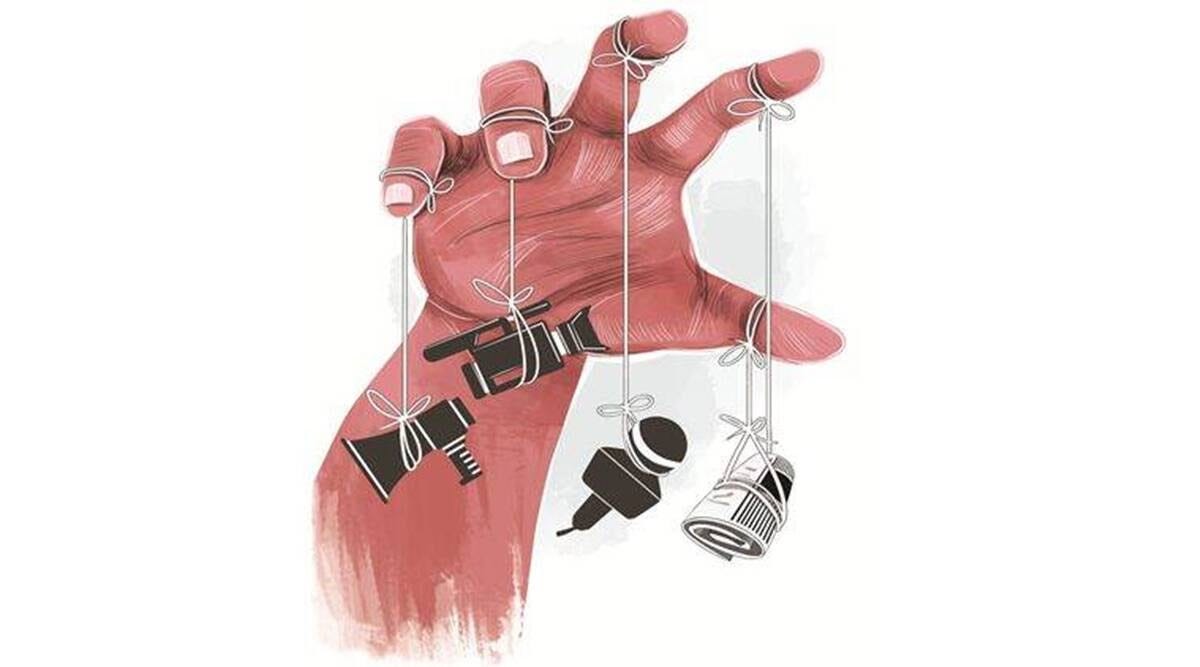Freedom of Expression Under Duress
The complex and contentious debate over the fragility of democracy has long been apparent. We are now living in a new reality whereby the…
The complex and contentious debate over the fragility of democracy has long been apparent. We are now living in a new reality whereby the self-righteous majority have collectively reached a consensus to silence the views they disagree with rather than debate in the battlefield of ideas. Free speech is becoming more constricted in our culture today as we are becoming intolerant to opposing views and limiting ourselves to the comfort of the echo chamber. Even the mainstream media has been reluctant to give exposure and warrant a voice for people with unconventional opinions. This culture we reside in is a culture that is hostile to dissenting opinions in which only the powerful in society or those views which align with the current doctrine are able to speak up without fear. Such attitudes inevitably make liberty itself relative as George Orwell famously puts it, “If liberty means anything at all, it means the right to tell people what they do not want to hear”. Many would regard the right for women to vote as one of the key liberties we pride ourselves on. However, bear in mind that such liberty was achieved by voicing unpopular views over a hundred years ago. By refusing to engage with conventionally unwanted perspectives, we could potentially be denying our future generations the unimaginable liberties of their era.
The birth of the Internet has inarguably reshaped every facet of our modern lives and that includes the way we see this sacrosanct human right; the freedom of expression. Today, we face renewed threats of state censorships and mass distortions of the truth. The United States of America, the self-proclaimed bastion of free speech and independent thought has brought into sharp relief the vulnerability of democracy under the Trump administration through the proliferation of blatant lies and deliberate disinformation to service the political gain of those in power. The dissemination of fake news and the dearth of factual accuracy clearly shows how freedom of expression can be weaponized and ironically undermine itself. The remarkably perceptive Hannah Arendt, one of the major political thinkers of the 20th century described the perplexity of the age of disinformation best. “Freedom of opinion is farce unless factual information is guaranteed and the facts themselves are not in dispute”. Celebrants of open and unfettered channels of internet expression must now grapple with anxiety as it is incredibly easy for people to get information online that will not only encourage political polarisation but also advance the online vitriol and discrimination with just a single click. The certainty that politics of hate speech and noxious language online has and will continue to create tangible harm in the real world is alarming and worrisome. The Internet has turned into a digital cesspool grimly effectively muting critical voices with “troll armies” spewing hate and baseless vile conspiracies meant to provoke and excite disruption of social order. And that leads us to one of our primary problems, the widespread of information severed from the commitment of truth. Early proponents of the Internet would have imagined a haven of information that would yield immense benefits to society but they have overlooked the elite-driven exploitability of information and the perils of vicious censorship due to the exercise of pernicious laws.
So how exactly do we draw the line when it comes to freedom of expression online that needs to be protected in a way that will retain its extraordinary capacity to enable citizens to freely express their views while regulating hate speech and limiting the risks of factual distortion and manipulation? How do we also ensure the credibility and veracity of the circulation of information in addressing disinformation? The simple answer lies in the existence of state action. It would be extremely naive to merely rely on the government as our champion of freedom of expression. There is nothing more dangerous to an already frail democracy to allow those in authority to manipulate public discourse. There should always be strong presumptions against giving the government the power to decide how and what ideas can and cannot be expressed. Time and time again leaderships across the globe have proven to us how far they will go to silence their critics and solidify their authority by weaponizing repressive draconian laws against their own people.
After a slew of political scandals and power struggles besetting the nation, Malaysia is on the brink of a faltering democracy. For autocrats around the world, this pandemic is a boon to grasp even more power and the current administration under Muhyiddin is no different. The Malaysian government for decades has been accused of using draconian and archaic laws to erode democratic norms, suspend the rule of law and quell political opposition. About two months ago, the celebrated graphic artist and activist Fahmi Reza was arrested in relation to a playlist he created which was entitled “This is Dengki Ke?”, a satirical take alluding to the comment the Queen made on Instagram. He is being investigated under the Sedition Act and the Communications and Multimedia Act. Zunar, a political cartoonist was also questioned by the police and investigated under the Penal Code and Communications and Multimedia Act regarding his caricature of the Kedah Menteri Besar. Police have also come to question participants of a solidarity protest for Fahmi Reza and participants of a peaceful protest against the Election Commission’s delay in implementing a reduction in the voting age to 18. Our leaders have managed to use the coronavirus as a pretext to boldly attempt to infringe on freedoms of assembly and expression and stymie criticisms.
The latest wave of cases and the criminalisation of freedom of expression to suppress dissent demonstrates the government’s ambitions to perpetuate a climate of fear and smother public discourse. Oftentimes, the sole purpose of preserving the peace and harmony of the country has been used a multitude of times to justify the widespread controls and crackdown of the media. Fear of the state leads to the normalisation of self-censorship which is detrimental and stifling to the political debate which is central to a democratic nation. Evidently, we see a steep decline in press freedom especially during the Perikatan Nasional government’s first year in power. From Malaysiakini’s conviction on contempt of court charges, investigation on Al Jazeera 101 East’s documentary raids on migrants during the COVID 19 pandemic with their offices being raided and even the targeting of journalists like Tashny Sukumaran of SCMP who was probed over the article she wrote regarding the government raids and round up of migrant workers. Recently, two journalists from Malaysiakini were under investigation over the articles published relating to the death of A. Ganapathy in police custody.
Rather than investigating reporters for unreasonable assumptions, the Malaysian authorities should be conducting an investigation into the allegations of police abuse. Instead of addressing the very root of the problems besetting our nation, the authorities chose to arrest those who courageously spoke up. It is strikingly clear that this country is being plagued by the rising rate of police brutality and the government fails to realise how prominent the role of the media is in such cases due to the lack of independent oversight mechanisms. The excessive use of institutional intimidation to stop journalists from exposing uncomfortable truths and holding the administration accountable is unacceptable. The relentless assault on journalism is undeniably an attack on the public’s right to information and the notion of truth itself. Sometimes, the people who stop us from speaking out about the problems in our country are the ones who benefit most from our silence. A free press is an essential ingredient to breaking free from the chains of submission and achieving a robust democracy. It gives the marginalised and disadvantaged a voice and empowers journalists to stop at nothing to pursue the truth and propel change.
Unsurprisingly, Malaysia’s ranking in the World Press Freedom fell 18 places from 101 to 119, the worst deterioration among 180 countries. The sharp decline and precipitous fall is likely due to the escalating repression of critical voices and authorities using archaic laws much like its predecessors to harass and silence vocal critics, exerting a chilling effect on the freedom of expression and shrinking civic spaces. The law protects the 3Rs, (race, religiosity and royalty) above all in the name of national security lest anyone incites “provocation” disrupting social order. This results in a restriction of necessary debate and political dialogue. Yet, we call ourselves a democratic country. Isn’t it finally time we address this stark contradiction? Quoting Nalini Elumalai, ARTICLE 19’s Malaysia Programme Officer, “A healthy environment for public discourse cannot be achieved until dissenting and unpopular opinions are respected and protected instead of silenced”. It is our responsibility to always be fervently critical of those in power. Only by a free flow of speech are we able to challenge existing institutions and orthodoxies, refine our views and evolve as a society.
Laws such as the Penal Code, Sedition Act, Communications and Multimedia Act and the Printing Presses and Publication Act are wide-sweeping and vaguely worded composing an invitation to abuse and curtail rights. The Sedition Act, for instance, a British colonial relic, is notoriously known for wielding against opposition politicians, journalists, activists and even ordinary citizens preventing anyone from expressing opinions deemed to be “seditious” or showing “hatred” towards the government. Therefore it is imperative that the arsenal of repressive laws crippling freedom of expression and enabling the initiation of baseless criminal proceedings against critics to be repealed. It is also our duty to persistently campaign for more human-centred policies in line with international human rights law.
Even though the concept of freedom of expression on the surface seems rather simple, in reality, there are complex lines needed to be drawn around what sort of speech is protected and specifically in what kinds of settings. There must be a way to distinguish the difference between a robust exchange of ideas and an overt spread of damaging falsehoods. However, in light of new technologies and the ever-evolving language, the boundary lines remain blurred. Nevertheless, we must never tolerate any abridgement of our essential rights for it is secured to us and enshrined in our country’s constitution. It is unnerving how state regulations and censorship has moved from preserving our freedom to dissent to entrenching the power of wealthy interests stripping us of our identity by silencing us. Malaysia’s troubled relationship with freedom of expression for the past decades serves as a clarion call for our nation to remain persistent in standing up to the government and upholding the principles of our constitution and the rule of law. This unparalleled onslaught against free expression and the muzzling of the country’s citizenry should not be taken lightly. Our hard-fought liberties will not be given up to an amoral, power-hungry bureaucracy antithetical to the foundations of democracy. The time has arrived for us to be tenacious vocal proponents, unflinching custodians and tireless crusaders to restore the liberties this country desperately needs.






